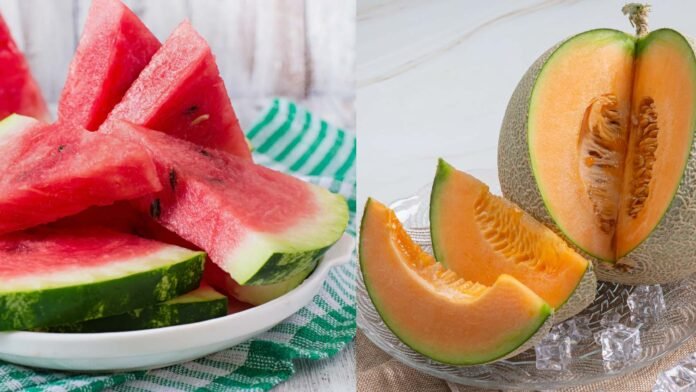Social media is currently abuzz with videos suggesting that watermelon and muskmelon can lead to food poisoning. However, are these claims grounded in reality?
Dr. Komal Kulkarni, a general physician and content creator, sheds light on the reasons behind the potential for food poisoning from these fruits. According to Dr. Kulkarni, there are two primary factors at play. Firstly, some vendors may use dyes and sugar syrup to enhance the color and taste of the fruits, which can pose health risks if consumed excessively. Secondly, the contamination of fruits with harmful bacteria from the soil in which they are grown is another potential cause of foodborne illness.
In a separate Instagram reel, health coach Miruna Bashkar shares her personal encounter with food poisoning after consuming watermelon. She attributes her adverse reaction to toxic dyes like Erythrocine, which are sometimes used to enhance the appearance of watermelons.
These revelations serve as a cautionary reminder for consumers to exercise vigilance when purchasing and consuming watermelon and muskmelon. While these fruits are generally considered safe and nutritious, it is essential to be aware of potential risks associated with additives and contaminants.
Consumers are advised to opt for organically grown fruits whenever possible, as they are less likely to be treated with harmful chemicals. Additionally, thoroughly washing fruits before consumption can help remove surface contaminants and reduce the risk of foodborne illness.
Furthermore, individuals experiencing symptoms of food poisoning, such as nausea, vomiting, diarrhea, or abdominal pain, should seek medical attention promptly. Timely intervention can help alleviate discomfort and prevent complications associated with foodborne illnesses.
As concerns about food safety continue to garner attention, consumers are encouraged to stay informed and exercise caution when making dietary choices. By being mindful of potential risks and taking proactive measures to ensure food safety, individuals can enjoy the nutritional benefits of watermelon and muskmelon without compromising their health.
In addition to the concerns raised by Dr. Komal Kulkarni and Miruna Bashkar, it’s essential to consider the broader context of food safety regulations and practices. The use of additives and chemicals in food production is subject to regulatory oversight in many countries. However, enforcement may vary, leading to inconsistencies in the quality and safety of food products available in the market.
For consumers, navigating these complexities can be challenging. While official guidelines and regulations exist to safeguard public health, individuals may still encounter instances where food products do not meet safety standards. This underscores the importance of awareness and advocacy for stronger regulatory measures to ensure the integrity of the food supply chain.
Moreover, the prevalence of foodborne illnesses underscores the need for greater education and awareness initiatives regarding food safety practices. Many consumers may not be fully aware of the potential risks associated with consuming certain foods or the importance of proper handling and storage techniques to prevent contamination.
By promoting education and providing resources on food safety, health authorities and advocacy groups can empower individuals to make informed choices about their dietary habits. This includes understanding how to identify signs of spoilage, properly washing and preparing fruits and vegetables, and recognizing symptoms of foodborne illness.
Furthermore, addressing the root causes of food contamination, such as poor hygiene practices and inadequate sanitation infrastructure, is essential for long-term prevention. Investment in infrastructure and public health initiatives aimed at improving food safety standards can help mitigate the risk of foodborne illnesses and protect public health.
In light of the concerns raised about watermelon and muskmelon, consumers may also consider exploring alternative sources of these fruits, such as farmers’ markets or organic producers. These options may offer greater transparency and assurance regarding the quality and safety of the products being sold.
Ultimately, ensuring food safety requires collaboration between various stakeholders, including government agencies, food producers, retailers, and consumers. By working together to uphold rigorous standards and promote best practices, we can mitigate the risk of foodborne illnesses and safeguard public health for all.

